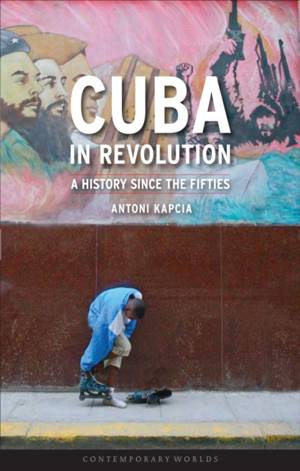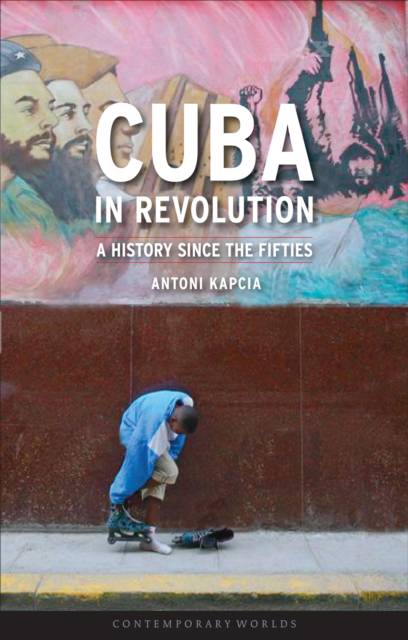
- Retrait gratuit dans votre magasin Club
- 7.000.000 titres dans notre catalogue
- Payer en toute sécurité
- Toujours un magasin près de chez vous
- Retrait gratuit dans votre magasin Club
- 7.000.000 titres dans notre catalogue
- Payer en toute sécurité
- Toujours un magasin près de chez vous
Description
The recent retirement of Fidel Castro turned the world's attention toward the tiny but prominent island nation of Cuba and the question of what its future holds. Amid all of the talk and hypothesizing, it is worth taking a moment to consider how Cuba reached this point, which is what Antoni Kapcia provides with his incisive history of Cuba since 1959.
Cuba In Revolution takes the Cuban Revolution as its starting point, analyzing social change, its benefits and disadvantages, popular participation in the revolution, and the development of its ideology. Kapcia probes into Castro's rapid rise to national leader, exploring his politics of defense and dissent as well as his contentious relationship with the United States from the beginning of his reign. The book also considers the evolution of the revolution's international profile and Cuba's foreign relations over the years, investigating issues and events such as the Bay of Pigs crisis, Cuban relations with Communist nations like Russia and China, and the flight of asylum-seeking Cubans to Florida over the decades. The collapse of the Soviet Union between 1989 and 1991 catalyzed a severe economic and political crisis in Cuba, but Cuba was surprisingly resilient in the face of the catastrophe, Kapcia notes, and he examines the strategies adopted by Cuba over the last two decades in order to survive America's longstanding trade embargo.
A fascinating and much-needed examination of a country that has served as an important political symbol and diplomatic enigma for the twentieth century, Cuba In Revolution is a critical primer for all those interested in Cuba's past--or concerned with its future.
Cuba In Revolution takes the Cuban Revolution as its starting point, analyzing social change, its benefits and disadvantages, popular participation in the revolution, and the development of its ideology. Kapcia probes into Castro's rapid rise to national leader, exploring his politics of defense and dissent as well as his contentious relationship with the United States from the beginning of his reign. The book also considers the evolution of the revolution's international profile and Cuba's foreign relations over the years, investigating issues and events such as the Bay of Pigs crisis, Cuban relations with Communist nations like Russia and China, and the flight of asylum-seeking Cubans to Florida over the decades. The collapse of the Soviet Union between 1989 and 1991 catalyzed a severe economic and political crisis in Cuba, but Cuba was surprisingly resilient in the face of the catastrophe, Kapcia notes, and he examines the strategies adopted by Cuba over the last two decades in order to survive America's longstanding trade embargo.
A fascinating and much-needed examination of a country that has served as an important political symbol and diplomatic enigma for the twentieth century, Cuba In Revolution is a critical primer for all those interested in Cuba's past--or concerned with its future.
Spécifications
Parties prenantes
- Auteur(s) :
- Editeur:
Contenu
- Nombre de pages :
- 272
- Langue:
- Anglais
- Collection :
Caractéristiques
- EAN:
- 9781861894021
- Date de parution :
- 01-09-08
- Format:
- Livre broché
- Format numérique:
- Trade paperback (VS)
- Dimensions :
- 137 mm x 216 mm
- Poids :
- 272 g







